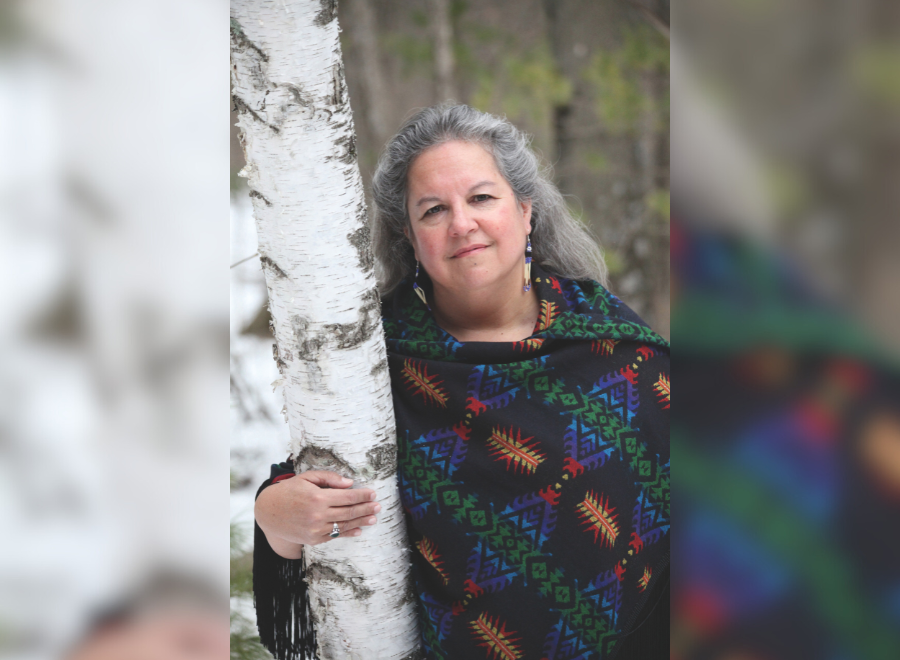Robin Wall Kimmerer strives to live according to the knowledge taught by plants. In her debut book, the runaway bestseller Braiding Sweetgrass, the Potawami botanist wove Indigenous wisdom together with scientific observation to highlight the interconnectedness of all living things. Her latest work, The Serviceberry: Abundance and Reciprocity in the Natural World, takes inspiration from the small red, blue and purple berries also known as Saskatoons, juneberries or shadbush in some parts of Canada. As she harvests the ripe fruit together with her namesake robins, she marvels at the gift of nature: “We both sing gratitude with our mouths full,” she writes.
For Kimmerer, gratitude and reciprocity, receiving and giving gifts, lie at the root of an ancient and renewable way of economics. She describes how, from the microbes in the soil, each subsequent step in the food chain gives of itself to feed the next. All plants and animals work to nurture life, though human beings have strayed from this responsibility.
You may unsubscribe from any of our newsletters at any time.
While our western economy prizes scarcity, competition and hoarding resources, the gift economy celebrates community. “Enumerating the gifts you’ve received creates a sense of abundance, the knowing that you already have what you need,” she writes. “Recognizing ‘enoughness’ is a radical act in an economy that is always urging us to consume more.”
More on Broadview:
She notes that there are sufficient food calories for all eight billion people living on Earth if we take just what we need. The transition to this economy is not simply a theoretical concept but a practical change we can all contribute to making a reality.
Indeed, moving to a gift economy is one facet of the decolonization that Canada’s Truth and Reconciliation Commission calls us to do as a country. The capitalist model of individual accumulation and prosperity undergirds our colonial history. By dispossessing and assimilating Indigenous Peoples, we sought to break down their connection to the land, destroying their understanding of the earth as the “source of belonging. The land then became simply a source of things that could be owned,” Kimmerer writes. Such a shift required transitioning “from common wealth to individual wealth, from abundance to scarcity.”
Kimmerer observes that ecological models offer us two tools to transform economies: incremental change and creative disruption. Slow replacement allows new species to emerge from the old. Massive disturbances tend to be destructive, but other disruptions of “the right scale and type create renewal and diversity by creating gaps, openings and edges between the new and the dominant,” she writes. Kimmerer suggests that emerging gift economies could be fostered in the gaps of the market economy.
The Serviceberry offers a bold argument for a new way of thinking and living that could be part of the solution to the climate crisis and biodiversity loss. Beautifully illustrated by John Burgoyne, the book is both a love song to the planet and a compelling vision for decolonizing our economic world view.
***
Rev. Teresa Burnett-Cole is a minister in Ottawa. She has a doctorate in liturgical studies.
This article first appeared in Broadview’s January/February 2025 issue with the title “Embracing the Gift Economy.”













